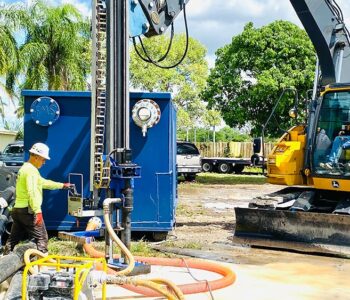 Business
Business
How can we start an industrial property business in New Jersey
New Jersey’s geographical location in the middle of major metro markets such as New York City and Philadelphia makes it a hotbed of activities in logistics, warehousing, and manufacturing. E-commerce has soared, and businesses continue to demand huge storage and distribution centers; never was there a better time to jump into the industrial property game in the Garden State. Regardless of whether you are an investor, broker, or an entering developer, knowledge of the basics is key to success.
This guide discusses how to set up your industrial property business, in line with market demand, legal requirements, and effective industrial property management, to grow your business.
Understand the Market Dynamics
You need to first understand what goes on behind the scenes when it comes to the industrial property sector before starting. Unlike residential and commercial properties, industrial properties are used operationally, such as for manufacturing, warehousing, and logistics. The factors controlling the demand in New Jersey include
- Nearness to ports (Newark and Elizabeth)
- Highway infrastructure (I-95, Route 1 & 9)
- Access to a huge consumer base in the tri-state area
Start by examining local trends—you also need to check out vacancy rates, average leasing prices, and Middlesex County, Edison, and South Jersey’s industrial properties for sale. Such realizations enable you to evaluate where the demand is highest and which type of property is most profitable.
Build a Strong Legal Foundation
It takes more than looking for a parcel of land to begin an industrial property business. You’ll find yourself dealing with an assortment of legal and regulatory requisites, such as
- Registration of a business with the New Jersey Division of Revenue
- Zoning and land use compliance (contact the local planning boards).
- Environmental guidelines, in particular, for older structures
- Permits to build, renovate, or change the use of a building Industries
It’s wise to involve a real estate attorney who is knowledgeable about New Jersey law. From the beginning, compliance can save your money from expensive delays or fines later on.
Identify Industrial Properties for Sale
When you’re ready to purchase assets, look for industrial properties for sale that fit the strategy: leasing, flipping, or even redevelopment for higher returns. You can source properties through:
- Databases of online properties, e.g, LoopNet or Crexi
- Local MLS (Multiple Listing Services)
- Direct contact with industrial real estate agents.
- Networking with local owners and brokers of property
Each property should be rated for accessibility, ceiling height, and floor load capacity as well as proximity to transportation hubs. Remember: location and usability are very significant to rental income and resale value.
Secure Financing for Your Venture
Industrial real estate is ordinarily capital-intensive. Depending on your business model, take into consideration such forms of financing as
- Conventional bank credit or commercial mortgages
- SBA 504 Loans (suitable for small businesses for purchasing industrial properties).
- Private investors or real estate partnerships
- Hard money lenders with deals that go quicker.
Write a full business plan, including the projected return on investments, cost of operations, and projected lease/rental income. A sound financial strategy is something lenders and investors will want to hear before putting any money into your vision.
Master Industrial Property Management
Industrial real estate asset ownership is just the start. How well you handle them will determine your long-term success. Industrial property management involves
- Lease negotiations and tenant screening
- Routine maintenance and capital improvements
- Safety compliance and equipment inspection
- Listen Collection and Operating Cost Control
Think about employing a professional property manager or creating internal forces to deal with daily functions. Good management not only makes tenants stay in the building for longer periods of time but also increases the value of the building.
Focus on Value-Add Opportunities
To be profitable, therefore, we seek to raise a property’s value. These may include:
- Remodelling out-of-date warehouses with modern amenities such as energy-saving lighting or dock levellers
- Braiding of large units into smaller ones for their multi-tenant space use.
- Transforming unused land into storage yards or the parking of commercial vehicles
When attracting high-paying tenants, these value-add tactics make your listings stand out from competitors.
Develop a Strong Marketing Strategy
Competition for industrial properties for sale is keen, considering more businesses are seeking the same. To get noticed, create a powerful marketing and branding identity:
- Create a professional website that demonstrates your portfolio.
- Use drone photography and aerial videos to accentuate the nature of the property
- Feature your real estate on major real estate platforms
Networking at your industry events and local chambers of commerce
Apart from that, market your brand as an industrial property expert. Posting shared blogs, white papers or hosting webinars can make you credible and draw both tenants and investors.
How to scale your business using smart partnerships
Industrial real estate growth is often by teamwork. As your portfolio grows, think about affiliations with:
- Building companies for renovations and expansions
- Environmental consultants to respond to compliance issues
- Seekers of space (logistics firms, suppliers)
- Local government for redevelopment opportunities or incentives on tax payments
Such partnerships can lead to off-market deals, bulk leasing opportunities, or good financing.
Conclusion: The Industrial Momentum to Act in New Jersey
New Jersey’s industrial property market is on fire, and there’s plenty of room for newcomers who know what they want and how to get it. Starting an industrial property business here requires more than capital. It requires market knowledge, legal consciousness, effective industrial property management, and an ability to see what others do not.
With the right foundation and a long-term vision, it is possible to have a flourishing business that would deliver the increasing need for industrial properties for sale in the state of New Jersey. It’s smart to start and move fast and well.
Would you like this formatted into a downloadable guide or an e-book to be used in client presentation?









